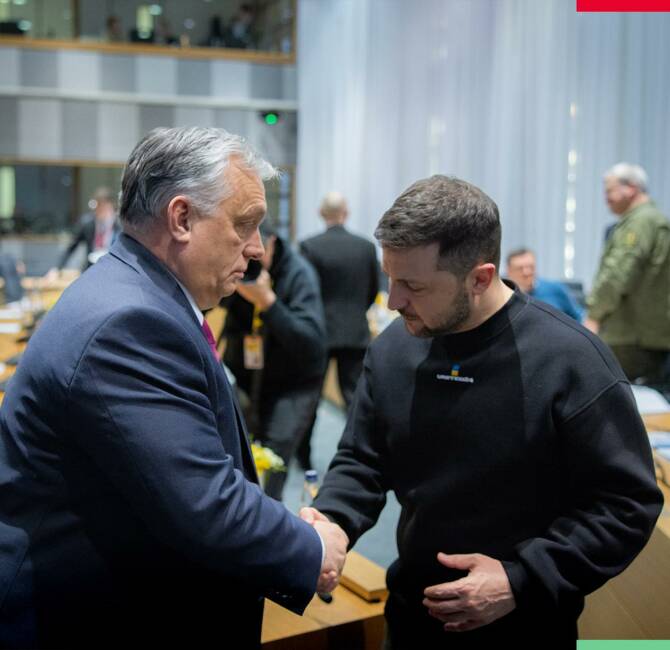Hungary – Hungary voted against the European Union’s new aid package for Ukraine at the December 14-15 European summit in Brussels. This decision, which blocked its adoption, provoked mixed reactions and added new tensions in Hungary’s already difficult relations with the EU.
“It is unacceptable that Hungarian money should be donated to the war”
In an interview with Radio Kossuth on December 15, Viktor Orbán explained the reasons behind Hungary’s veto of the aid package alongside its opposition to opening negotiations for Ukraine’s accession to the European Union. Hungary did not block this latter decision, however, as Viktor Orbán was convinced by his EU partners not to take part in the vote on it: “I spent eight hours trying to convince everyone not to put [this topic] on the agenda. This decision is ill-timed. Let’s get back to it when Ukraine is ready to negotiate. […]
Member states, including Hungary, would have given money to Ukraine. I had to veto the 50 billion euros for Ukraine and the related budget amendment. They had no choice but to take note”,
Orbán further said about the planned aid package, adding: “I have made it clear that the financial consequences of this decision will not be paid for by the Hungarian people. If necessary, Hungary will put on the brakes. Let there be no doubt about it. […] Hungary can’t always use its veto, but at a time when we are suffering the consequences of sanctions, it hit the brakes. […] It is unacceptable that Hungarian money should be donated to the war.”
Mixed reactions from Hungary’s European partners
Reactions to the veto were mixed, with some hailing Hungary’s position while others criticized it as political obstruction. The Hungarian Prime Minister also said that if Hungary did not want Ukraine to become a member of the European Union, the Hungarian Parliament could always vote against it.
This underlines the continuing tensions within the EU, where national political differences can interfere with collective decisions. As European leaders seek to ease tensions and find a compromise, the Hungarian veto highlights the challenges facing the bloc in its search for a unified approach on crucial issues, such as aid to its neighbours.




